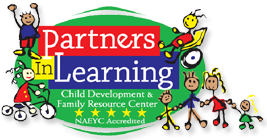Wow! What an exciting day we had with our Summer Fun Campers. After lunch we loaded up the bus and headed to Meadowbrook Pool where the sparkling blue water had all us shrieking with delight in anticipation of jumping in the water for a couple of cool, fun filled hours. It was so amazing to watch the children imagine so many different ways to play and become comfortable in the water. What a wonderful opportunity for me to be able to spend time getting to know the children and to see how unique and special each child is.
The afternoon ended with everyone climbing out of the pool very thirsty and sooo hungry. We were provided water and a much needed snack. As always, with each new experience, my world of wondering why, has led me to question: “Why are we soooo thirsty and hungry after swimming?” So on to the internet I go for some research. This is what I found:
“Question: "I'm always famished after I go swimming. What makes this happen?"
Answer: Researchers don't know exactly why this occurs, but they suspect that it's because the cooler temperature of the water causes your body to lose heat and the blood vessels in your skin to constrict. This prevents the release of certain hormones that suppress appetite during and soon after exercise, says Rudy Dressendorfer, PhD, an adjunct professor at the University of Alberta's Human Performance Laboratory in Edmonton.
One study conducted by Dressendorfer and his colleagues found that people who exercised in colder water consumed 44 percent more calories following their workout than those who expended the same amount of energy in warmer water. But you don't have to fall prey to after-swim hunger. Dressendorfer says that you can reduce it somewhat by taking a brisk 15-minute walk to warm up your body immediately after you get out of the pool.
Originally published in Fitness magazine, February 2006” http://www.fitnessmagazine.com/workout/tips/expert-advice/why-am-i-always-hungry-after-swimming/
“Why Swimming Makes You Hungry
This hunger has physiological reasons.
1. Water draws heat from your body faster than air. Your child’s body uses energy to keep warm, and the heat loss triggers his body to create insulation in the form of fat. Both of these things send a message to his brain that his body needs fuel.
2. Swimming, like any other exercise, makes your child thirsty, but because he’s not sweating, he can become dehydrated without realizing it. Some of what your child perceives as hunger when he gets out of the pool may actually be thirst.
What to Do about It
Have a warm drink ready for your kids as soon as they get out of the pool after your swimming lesson, before they have a snack. It will help them warm up and satisfy any thirst that’s masquerading as hunger. After that, give them a snack.”
http://teachyourkidstoswim.com/2010/08/09/mystery-solved-why-swimming-makes-you-hungry/
So, swimmers, enjoy your happy summer days, drink plenty of water, and have a snack! Oh, and don't forget the suncreen!
Colleen Carman, Finance/HR Director


















